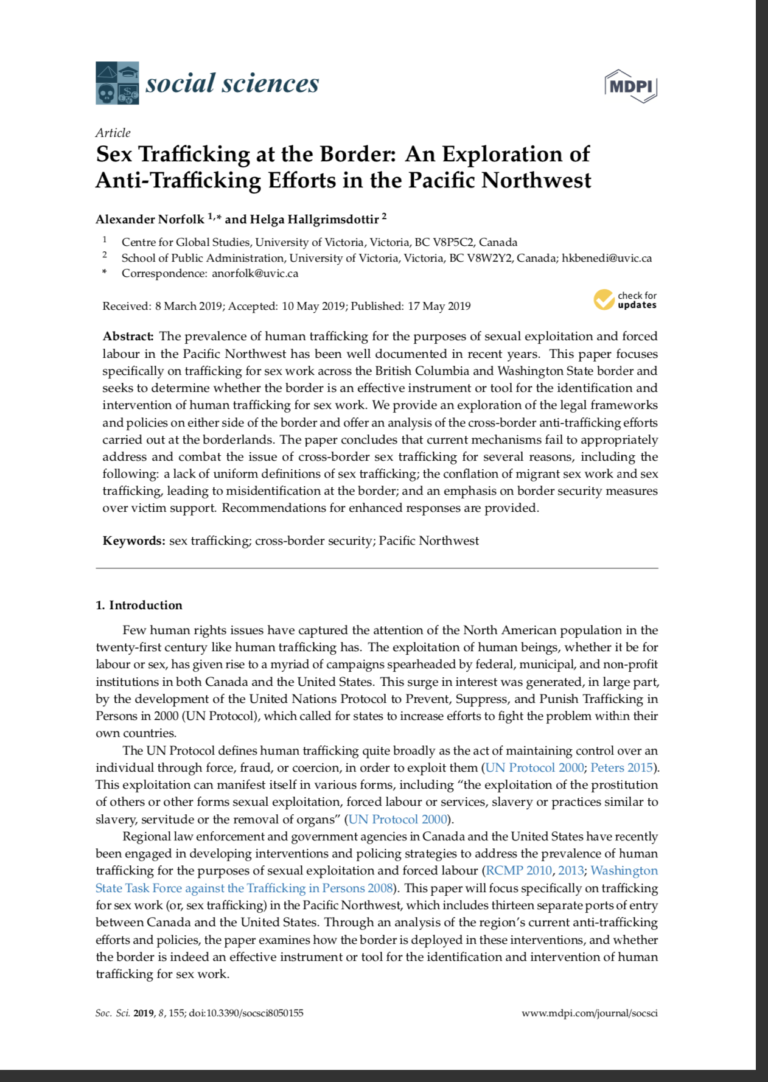The prevalence of human trafficking for the purposes of sexual exploitation and forced labour in the Pacific Northwest has been well documented in recent years. This paper focuses specifically on trafficking for sex work across the British Columbia and Washington State border and seeks to determine whether the border is an effective instrument or tool for the identification and intervention of human trafficking for sex work. We provide an exploration of the legal frameworks and policies on either side of the border and offer an analysis of the cross-border anti-trafficking efforts carried out at the borderlands. The paper concludes that current mechanisms fail to appropriately address and combat the issue of cross-border sex trafficking for several reasons, including the following: a lack of uniform definitions of sex trafficking; the conflation of migrant sex work and sex trafficking, leading to misidentification at the border; and an emphasis on border security measures over victim support. Recommendations for enhanced responses are provided.

